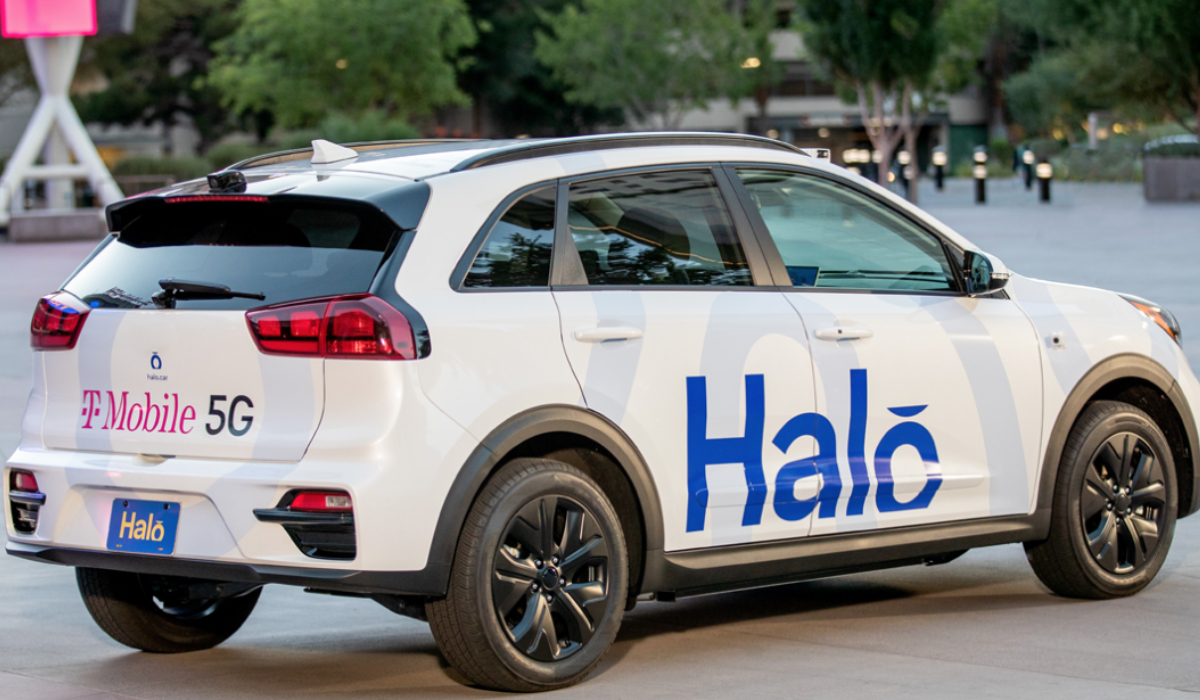T-Mobile is teaming up with Halo, a commercial driverless car service provider, to move people around the Las Vegas Valley.


The latest in what’s making the casino town also a hub for innovate public transportation services, Halo expects to begin offering rides to customers later this year. The tech startup says it will initially be available in urban parts of Las Vegas.
With Halo, riders can hail a ride by simply using the company’s mobile app. A driverless car will soon arrive, and swiftly send customers off to their destination. The vehicles are not autonomous, however, as Halo has a command center where physical drivers are located and pilot the cars remotely.
Full autonomy is a massive challenge from both a technical and social trust perspective that won’t be solved for years to come,” said Anand Nandakumar, the founder and CEO of Halo. “But Halo has been designed to address these challenges by building automation over time, starting with a solution that consumers will feel comfortable using today.”
Halo drivers use nine cameras positioned on the vehicle that feed a video stream live to the person in the command center. Halo relies on T-Mobile’s 5G network, which the telecommunications company claims is the “biggest, fastest, and most reliable 5G network in the country.”
Halo did not say what sort of fares will be installed for its Las Vegas rides.
Transport Tourism Draw
Las Vegas is best known for its casinos. But the gaming capital of the nation heavily relies on convention business to keep its resort hotel rooms filled. In 2019, some 6.6 million people arrived in Southern Nevada with the primary purpose of attending a business exhibition.
After more than a year of such large-scale business gatherings not taking place because of the pandemic, Las Vegas is hoping those annual exhibitions return in 2021 and the years ahead.
For the conventions that do return, the Las Vegas Convention Center has a new amenity that is “wowing” visitors. Early last month, just in time for the World of Concrete, the first major convention back on the Strip since the onset of COVID-19, the Vegas Loop opened to the general public.
The $52.5 million undertaking was completed by Elon Musk’s The Boring Company. The 1.7-mile tunnel system greatly shortens the long walk across the Convention Center campus into just a 120-second ride in a fully autonomous Tesla vehicle.
There are plans to extend the Loop to casino resorts on the Las Vegas Strip, though experts say that is likely years away.
The Las Vegas Convention and Visitors Authority (LVCVA) acquired the Las Vegas Monorail last year for $24.26 million. The 3.9-mile elevated people mover was previously the only privately owned public transportation system in the country. After more than a year of not running, the Monorail resumed service in May.
Driverless Attitudes
While the Halo/T-Mobile forthcoming product is certainly innovative, it isn’t clear if Americans are ready to hop in a car without a driver in the front.
According to a recent poll conducted by SurveyUSA for the Partners for Automated Vehicle Education, nearly one in two said they would never get in a taxi or ride-sharing vehicle that was self-driving.
The post T-Mobile, Halo Announce Driverless Cars in Las Vegas, City Becoming Tech Hub appeared first on Casino.org.
